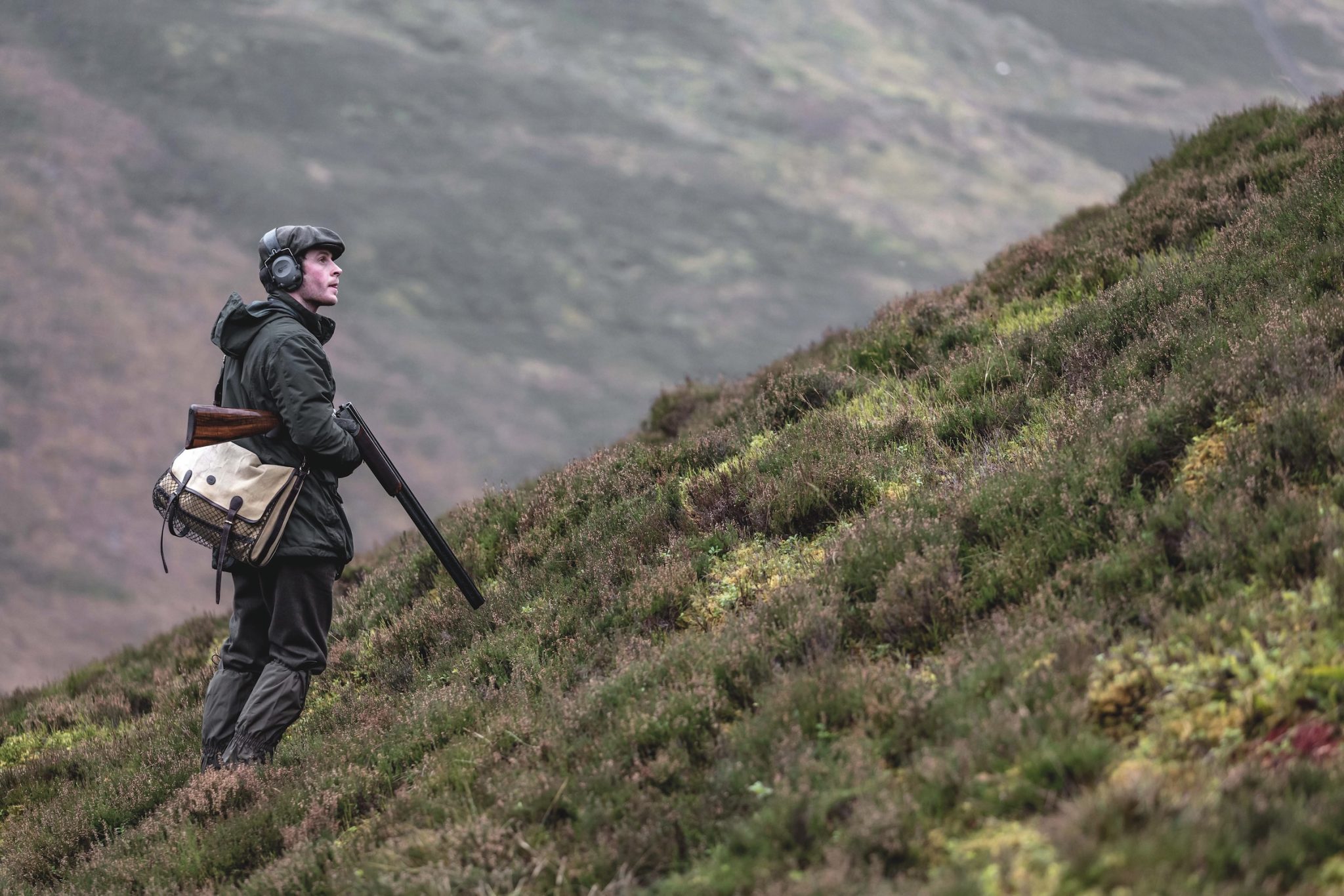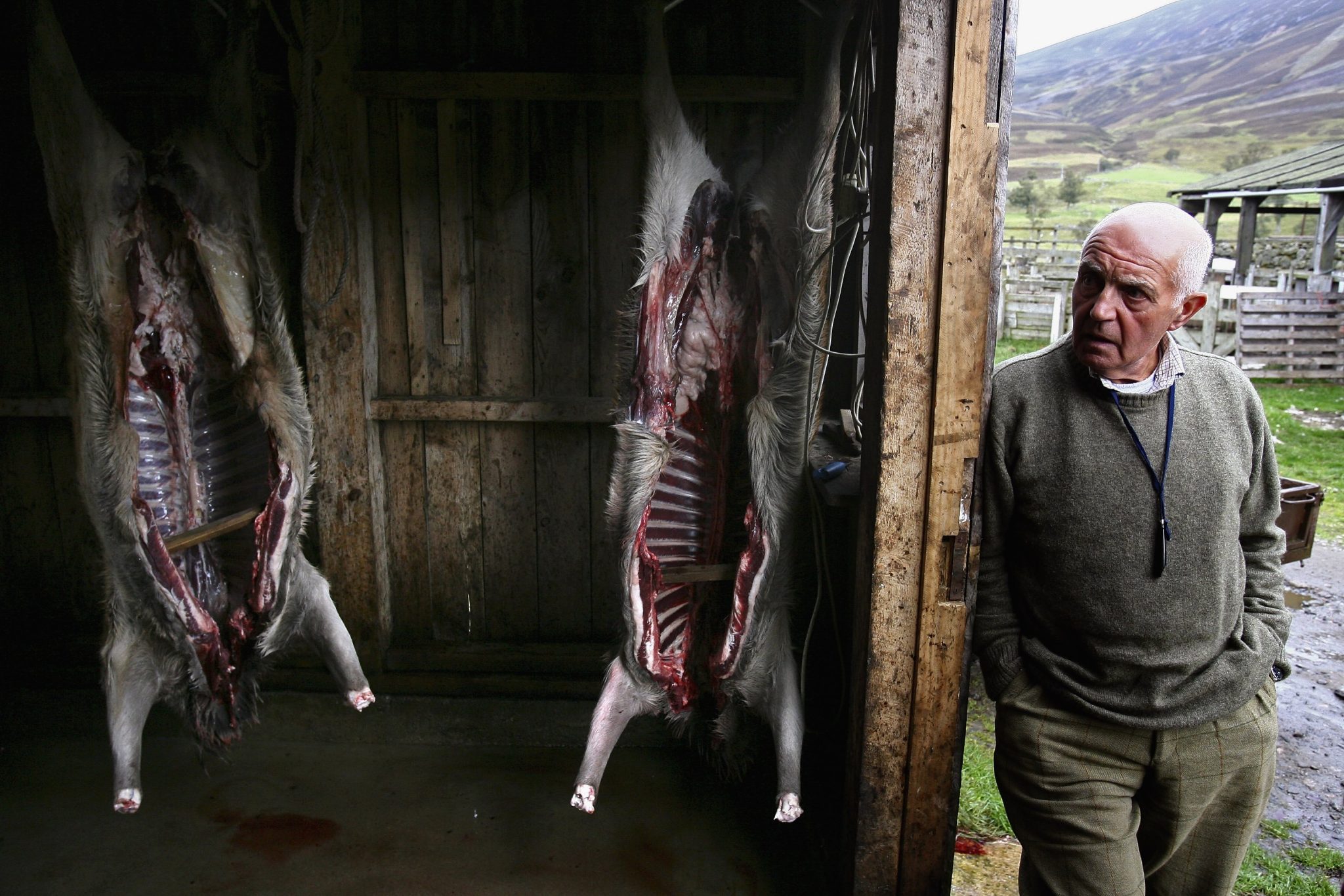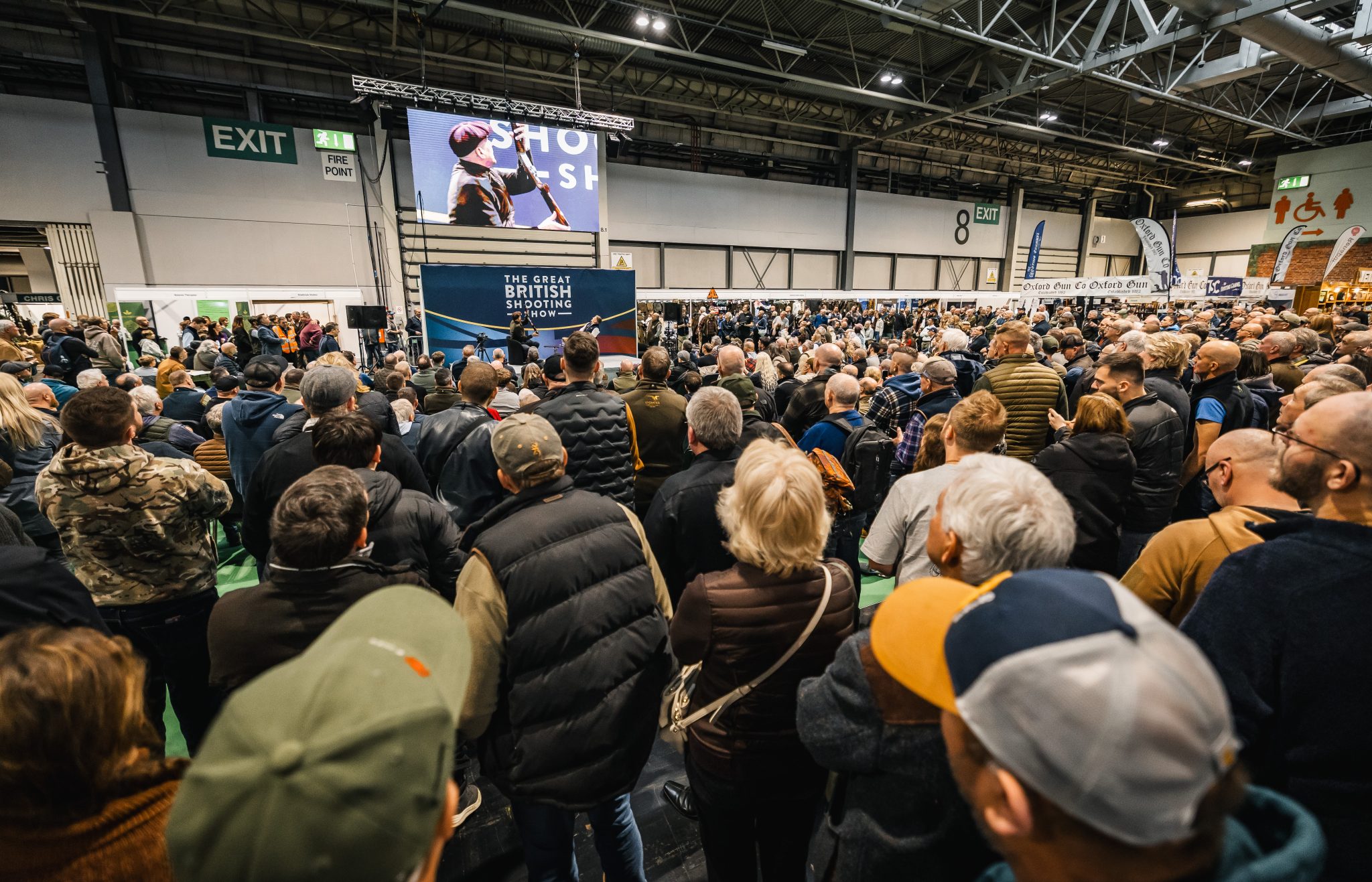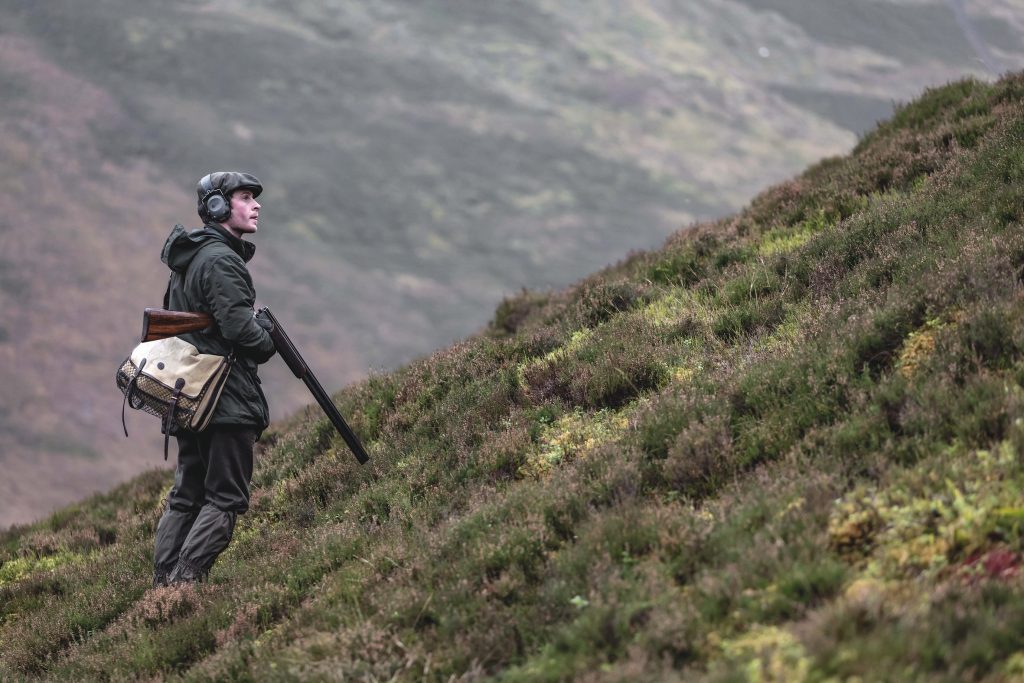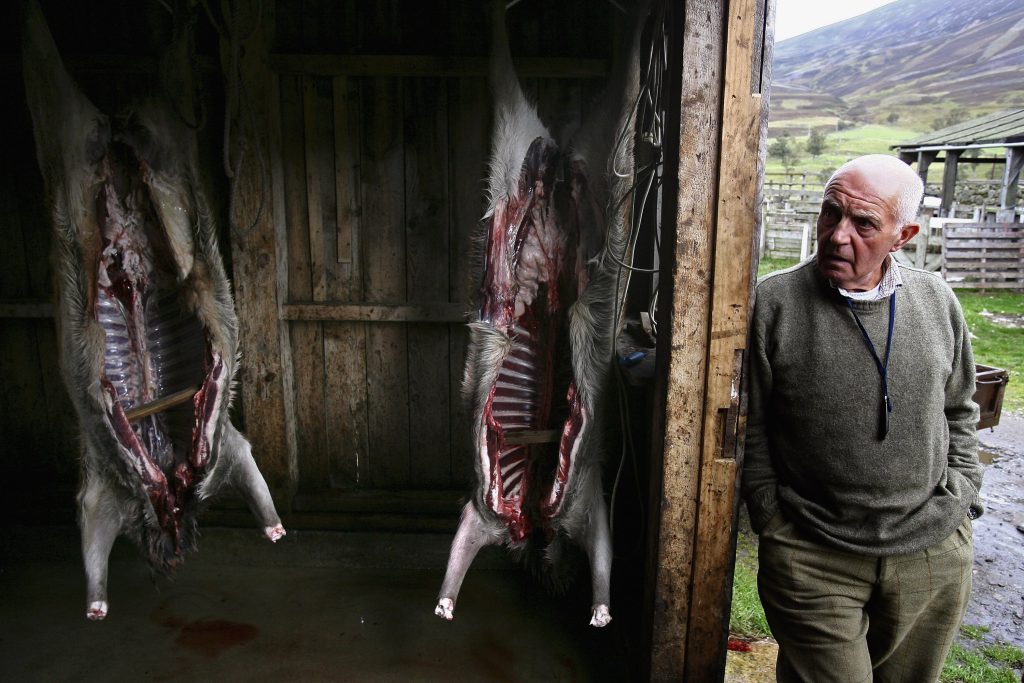★ Win a Schöffel Country shooting coat for everyone in your syndicate worth up to £6,000! Enter here ★
Hunting & shooting: the sustainable way
It was an enjoyable assignment investigating the conservation benefits of sustainable hunting for <em>Shooting Times</em>, not least as it gave an opportunity to look at hunting from an international perspective.

The idea for the piece came originally from visiting a hunting show just south of Paris, called Le Salon de la Chasse de Rambouillet, which is an annual get-together for top end vendors in France.
Open to the public, the indoor event attracts thousands of wealthy hunters, especially those with an interest in big game hunting, fine guns and rifles, sporting art and expensive clothing. If you are interested in booking an exotic hunting trip, or buying all the paraphernalia that goes with it; then it may be worth a visit – especially from London as the EuroStar and commute across Paris is fairly painless. (www.salondelachassederambouillet.com)
The show has a theme each year, with the latest being, ‘Le chasseur, mon ami’ – ‘The hunter, my friend’, which we pinched for the article. By happy coincidence, the journalist Louis Theroux addressed the issue the following week on BBC2 in his ‘African Hunting Holiday’ investigation.
Most people I have talked to described the documentary as well-balanced and surprisingly fair, given how it started out. I did feel some sympathy for Theroux that he was not prepared to shoot the pig at 30 yards from a blind: perhaps if he had genuinely hunted the creature to feed a table of his friends, then maybe he’d have pulled the trigger.
The notion of hunting as a conservation tool seems to be a cause célèbre at the moment, which made my job that much easier. Indeed, in 2006, there was a symposium on recreational hunting at London Zoo, which was chaired by the the Sustainable Use Specialist Group, part of the IUCN Species Survival Commission and supported by the International Council for Game and Wildlife Conservation (CIC), Fauna Flora International and a raft of hunting organisations.
While the conservationists and scientists did not emphatically hail recreational hunting as the answer to the current struggles of endangered species – there are too many examples where irresponsible hunting has been the root cause of the problem – the pro-hunting lobby went away feeling encouraged.
The CIC said afterwards: “Astonishingly, with the heterogeneous make-up of the participants, the major focus of the symposium did not target the usual polarizing and dividing question of whether one should hunt or not, but rather aimed at how to optimize the hunt and hunting practices.” The CIC held its own symposium on ‘Hunting: A Tool for Sustainable Rural Development’ in Marrakech this week.
I had been slightly concerned that I wouldn’t find anyone willing to talk about the subject, but that proved unwarranted. One body in particular I did not have room to include was the Federation of Associations for Hunting and Conservation of the EU (FACE), which campaigns tirelessly for the rights of hunters amid the red tape of Brussels.
Their spokesman was quick to differentiate from the African model of conservation hunting, saying: “The first thing to make clear is that the European model of sustainable hunting is based primarily on habitats rather than on specific species, like the African model, and that endangered species are not hunted. In this model, habitats and non-endangered populations are managed allowing endangered species to survive. In this case, resources returned to conservation from hunting non-endangered species are to the benefit of all.”
Another source who I would like to have included, not least because they went to some lengths to provide several of the photos, was the Association pour la Protection de la Faune de Centrafrique (APFC). This charity operates a team of anti-poaching guards to protect the elephants in the north of the Central African Republic, which come under attack from heavily armed militia in the Sudan and, to a lesser extent, poachers from Chad.
Thierry Fecomme is a spokesman for the organisation and he appealed for international recognition of their plight before the once-plentiful stocks of game in the country are exhausted: “It is a desperate struggle at the moment,” he said, “as the poachers that we are trying to fight are trained soldiers from the conflict in Darfur, funded by unscrupulous ivory traders who we imagine are linked with China. It is a war along the border, which we cannot hope to win without government support.”
There is a proud tradition of big game hunting in the CAR and it should be stressed that commercial hunting packages are still being safely operated by experienced outfits. Scare-mongering media stories about armed poachers have previously resulted in tourists cancelling their bookings, which were since proved to be an over-reaction. However, Thierry warns that if no action is taken, the likelihood of attacks on foreign hunting camps will increase.
“The poachers are becoming more and more confident,” he said, “and travelling further south to find the ivory. We know that a number of foreign hunters are already choosing not to come back to the CAR to hunt. This is where we believe we will have a chance of receiving more help from the government, because they are losing valuable income as a result. The local people too are losing money because their economy is based on foreign hunters’ investment. We are currently deliberating whether to stage an embargo on hunting – a year long strike – to show the government how much they will lose if the hunting stops. It would be a dramatic move, but these are desperate times.”
Related Articles
Get the latest news delivered direct to your door
Subscribe to Shooting Times & Country
Discover the ultimate companion for field sports enthusiasts with Shooting Times & Country Magazine, the UK’s leading weekly publication that has been at the forefront of shooting culture since 1882. Subscribers gain access to expert tips, comprehensive gear reviews, seasonal advice and a vibrant community of like-minded shooters.
Save on shop price when you subscribe with weekly issues featuring in-depth articles on gundog training, exclusive member offers and access to the digital back issue library. A Shooting Times & Country subscription is more than a magazine, don’t just read about the countryside; immerse yourself in its most authoritative and engaging publication.



